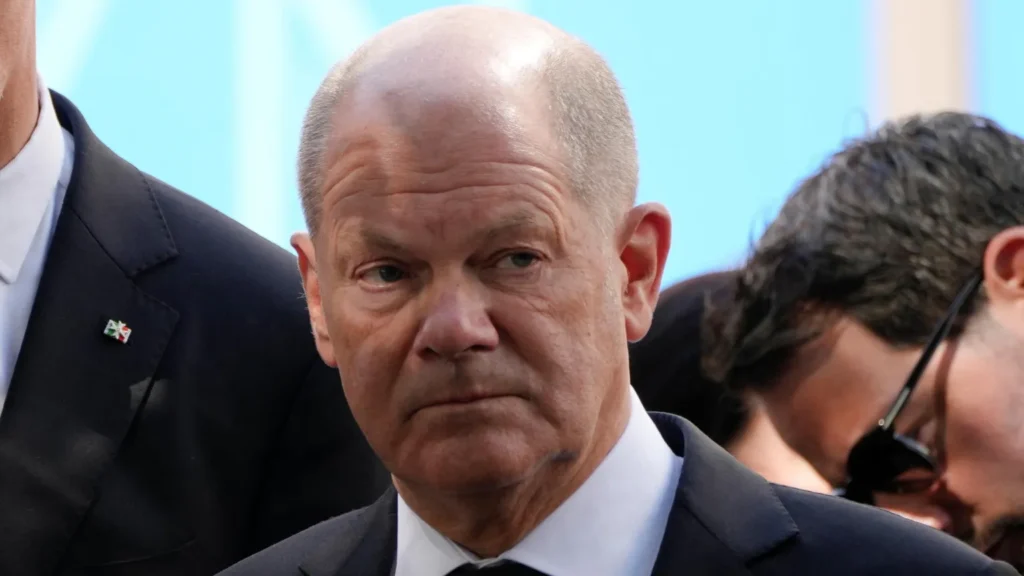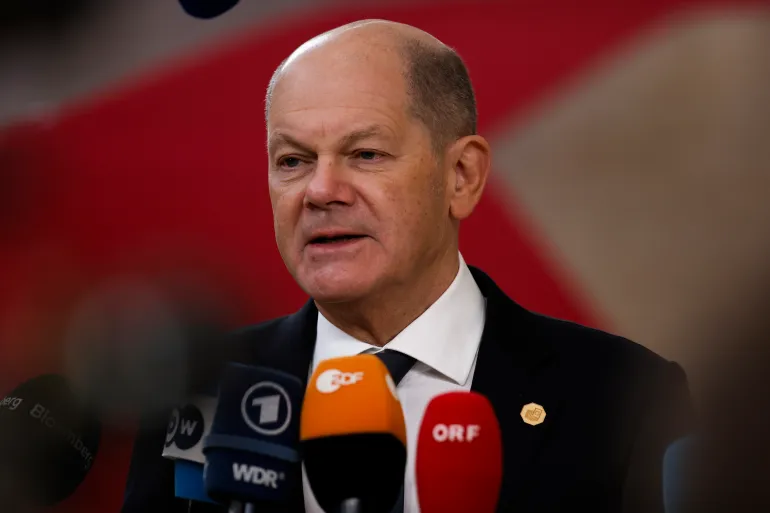In the wake of significant victories in regional elections by the right-wing Alternative for Germany (AfD), German Chancellor Olaf Scholz has urged mainstream parties to form a united front and oppose any cooperation with the right-wing party. Scholz’s call comes after the AfD’s big win in the eastern state of Thuringia, marking a remarkable shift in Germany’s political landscape. The result is the AfD’s first outright victory in a state parliament election since World War II, a development that has set off alarm bells across the country’s political spectrum.
Divisive win in Thuringia and growing influence in Saxony
The AfD’s victory in Thuringia is seen as a pivotal moment in German politics. With over 30% of the vote, the party not only won the state election but also obtained an “obstructing minority”. This status allows the AfD to block major legislative changes such as the appointment of new judges or constitutional amendments. The political impact of this result is enormous, as it effectively complicates the formation of any stable government in the region. The AfD also performed strongly in the neighbouring state of Saxony, gaining 41 seats in the regional parliament and coming in second only to the conservative Christian Democratic Union (CDU), which won 42 seats. The result in Saxony further underlines the AfD’s growing influence in Germany’s eastern regions, which have historically been more receptive to the party’s far-right, anti-immigrant rhetoric.

Scholz’s warning: Maintain a “firewall” against the far-right
In response to these election results, Chancellor Scholz has called on all democratic parties to maintain a “firewall” against the AfD to prevent the far-right from gaining any governing power. Scholz described the election results as “bitter” and “worrying”, saying, “All democratic parties are now called upon to form a stable government without right-wing extremists.” He emphasised the need for a broad coalition of mainstream parties to unite against the rise of extremism and preserve the democratic integrity of German politics.
AfD’s counter-argument: Challenge to democratic norms?
However, AfD co-leader Alice Weidel criticised Scholz’s call for a firewall, calling it “undemocratic”. Weidel argued that the significant success made by her party in both Thuringia and Saxony represented a “clear mandate to govern” from voters. She argued that excluding the AfD from government coalitions would “undermine the democratic participation of large sections of the population.” “Firewalls are undemocratic,” she said, accusing mainstream parties of refusing to accept the will of voters.

The AfD’s leadership has stuck to its view that they deserve a role in government, pointing to their electoral success as proof of their legitimacy. Björn Höcke, the AfD’s top candidate in Thuringia, has suggested that there are many CDU voters who would welcome a partnership between the two parties. However, the CDU has made it clear that it will not consider any cooperation with the AfD, leaving the path to a majority coalition highly uncertain.
Dilemma for the conservative CDU: left or right?
The CDU now faces a tough choice in Thuringia. With the AfD holding a minority and refusing to be sidelined, the CDU will need to form a coalition with left-wing parties to establish a governing majority. However, the CDU has previously been reluctant to work with the left-wing Die Linke party, a stance that complicates coalition talks.
This situation leaves the CDU potentially considering a partnership with the newly formed Bündnis Sahra Wagenknecht (BSW), the more radical left-wing populist. Such a coalition would be unpalatable to many within the CDU’s conservative ranks, yet it may be the only viable option to form a stable government without involving the AfD. This potential coalition highlights the broader challenge of maintaining a centrist stance in the face of deep political divisions and rising populism within the region.

Implications for Germany’s national coalition government
The regional elections in Thuringia and Saxony also reflect widespread discontent with Germany’s national “traffic-light” coalition government, made up of Scholz’s Social Democratic Party (SPD), the Greens, and the liberal Free Democratic Party (FDP). All three governing parties performed poorly in the regional elections, a sign of growing discontent among voters with the current national leadership.
The SPD, in particular, performed poorly in both Thuringia and Saxony, winning only six seats in the former and coming in fifth in the latter. The Greens and FDP also failed to gain any significant momentum, underscoring the challenges facing the national coalition. These election results are likely to increase internal rifts within the coalition, with each party trying to impose its own values more forcefully.
